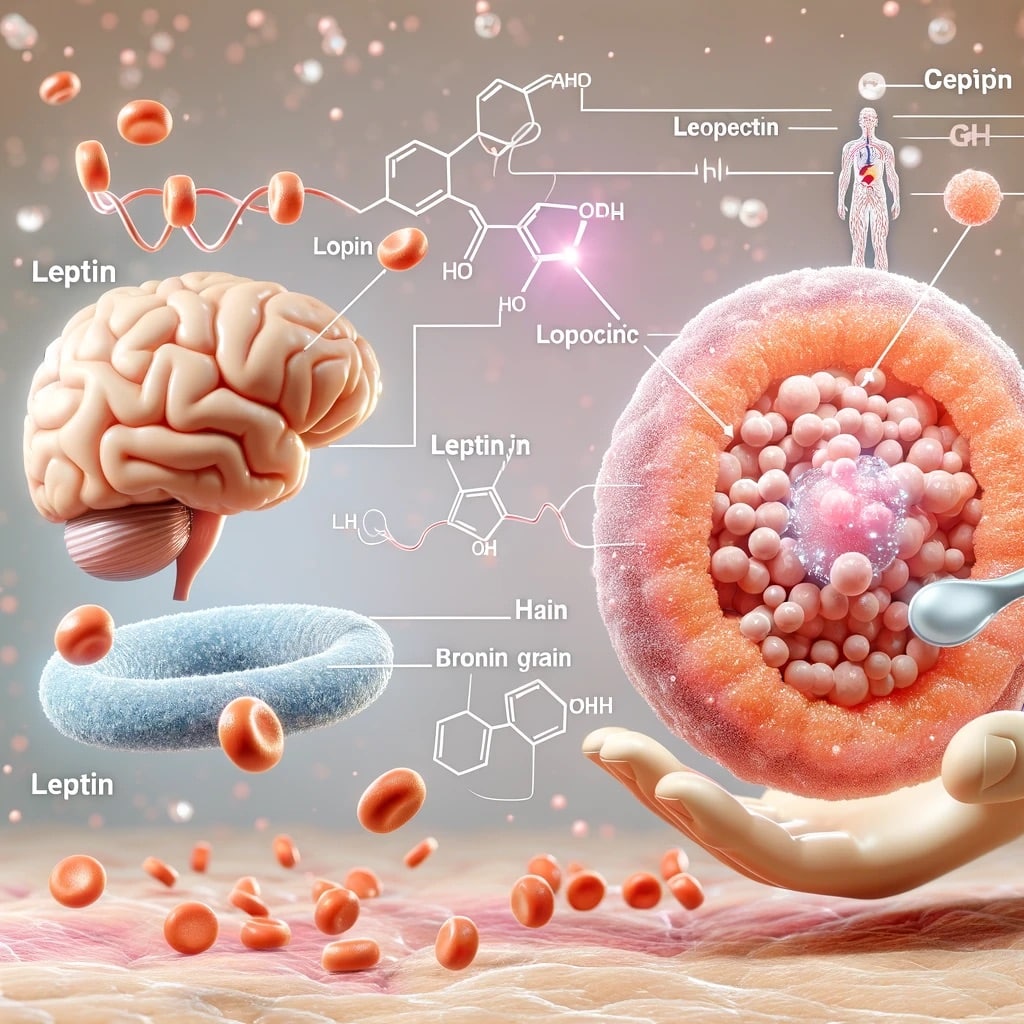How the Human Body Stores Energy (Calories), Hormones’ Effect on Metabolism, and the Role of Leptin in Obesity Treatment
Table of Contents
- Introduction
- How the Human Body Stores Energy
- Hormones and Metabolism
- Changes in Obesity
- The Role of Leptin in Obesity Treatment
- Conclusion
Introduction
Understanding how our bodies store and use energy can help us make better choices about our diet and lifestyle. Let's explore how our bodies store energy in the form of calories, how hormones affect our metabolism, the changes that occur in obese individuals, and the role of the hormone leptin in treating obesity.
How the Human Body Stores Energy
The food we eat provides us with energy, measured in calories. When we consume more calories than our body needs for immediate energy, the excess is stored for future use. Our body stores energy in two main ways: as glycogen and as fat.
- Glycogen Storage: Glycogen is a form of carbohydrate stored in the liver and muscles. It acts as a quick source of energy that can be easily accessed when we need it. However, our glycogen stores are limited; once they are full, any extra calories are converted into fat.
- Fat Storage: Fat is the body's long-term energy storage. Excess calories are converted into triglycerides and stored in fat cells (adipocytes) throughout the body. Fat is more energy-dense than glycogen, providing a more efficient way to store large amounts of energy.
Hormones and Metabolism
Our metabolism, the process by which our bodies convert food into energy, is regulated by a complex interplay of hormones. Key hormones involved in this process include insulin, glucagon, thyroid hormones, and leptin.
- Insulin: Produced by the pancreas, insulin helps cells absorb glucose (sugar) from the bloodstream to use as energy or to store as fat. Insulin levels rise after eating, promoting the storage of energy.
- Glucagon: Also produced by the pancreas, glucagon works in opposition to insulin. It signals the liver to release stored glucose when blood sugar levels are low, ensuring a steady supply of energy between meals.
- Thyroid Hormones: These hormones, produced by the thyroid gland, regulate the overall rate of metabolism. They affect how quickly we burn calories and how efficiently our bodies use energy.
- Leptin: Produced by fat cells, leptin plays a crucial role in regulating energy balance by inhibiting hunger. It communicates with the brain to signal when we have enough stored energy, thus reducing appetite.
Changes in Obesity
In obesity, the body's energy balance is disrupted, leading to excess fat storage. Several changes occur that make it more challenging to lose weight and maintain a healthy weight.
- Insulin Resistance: In obese individuals, cells become less responsive to insulin, a condition known as insulin resistance. As a result, the pancreas produces more insulin to compensate, which can lead to further fat storage and, eventually, type 2 diabetes.
- Leptin Resistance: Despite high levels of leptin due to increased fat stores, the brain may not respond effectively to this signal. This leptin resistance means that the brain does not recognize when the body has enough stored energy, leading to increased hunger and continued fat accumulation.
- Inflammation: Obesity is associated with chronic low-grade inflammation. Fat tissue, especially visceral fat around the organs, releases inflammatory molecules that can disrupt normal metabolic processes and contribute to insulin and leptin resistance.
- Metabolic Rate: The metabolic rate, or the number of calories the body burns at rest, can decrease in obese individuals. This reduction makes it harder to lose weight since the body requires fewer calories to maintain its current weight.

The Role of Leptin in Obesity Treatment
Given leptin's role in regulating hunger and energy balance, it has become a focal point in obesity research and treatment.
- Leptin Therapy: Initially, scientists hoped that administering leptin could help reduce obesity by curbing appetite. However, this approach has had limited success in most obese individuals due to leptin resistance. Simply increasing leptin levels does not necessarily improve the brain's sensitivity to the hormone.
- Addressing Leptin Resistance: Current research is focused on overcoming leptin resistance. This includes exploring ways to improve the brain's response to leptin. Potential strategies involve targeting inflammation, improving insulin sensitivity, and altering the gut microbiota, which may influence leptin signaling.
- Diet and Lifestyle: While medical treatments are being developed, lifestyle changes remain crucial for managing obesity. A balanced diet, regular physical activity, and stress management can help improve leptin sensitivity and overall metabolic health. Reducing the intake of processed foods and added sugars, which can contribute to insulin and leptin resistance, is particularly important.
- Future Treatments: Researchers are investigating new drugs and therapies that can mimic leptin's effects or enhance its signaling pathways. These treatments aim to restore the body's ability to regulate hunger and energy balance effectively.
Conclusion
Understanding how our bodies store energy, the role of hormones in metabolism, and the changes that occur in obesity provides valuable insights into managing and treating obesity. While leptin resistance poses a significant challenge, ongoing research holds promise for new treatments. In the meantime, adopting a healthy lifestyle remains a cornerstone of obesity management, helping to improve hormone sensitivity and support long-term weight control.
By gaining a deeper understanding of these processes, we can better navigate the complexities of weight management and work towards healthier, more balanced lives.

